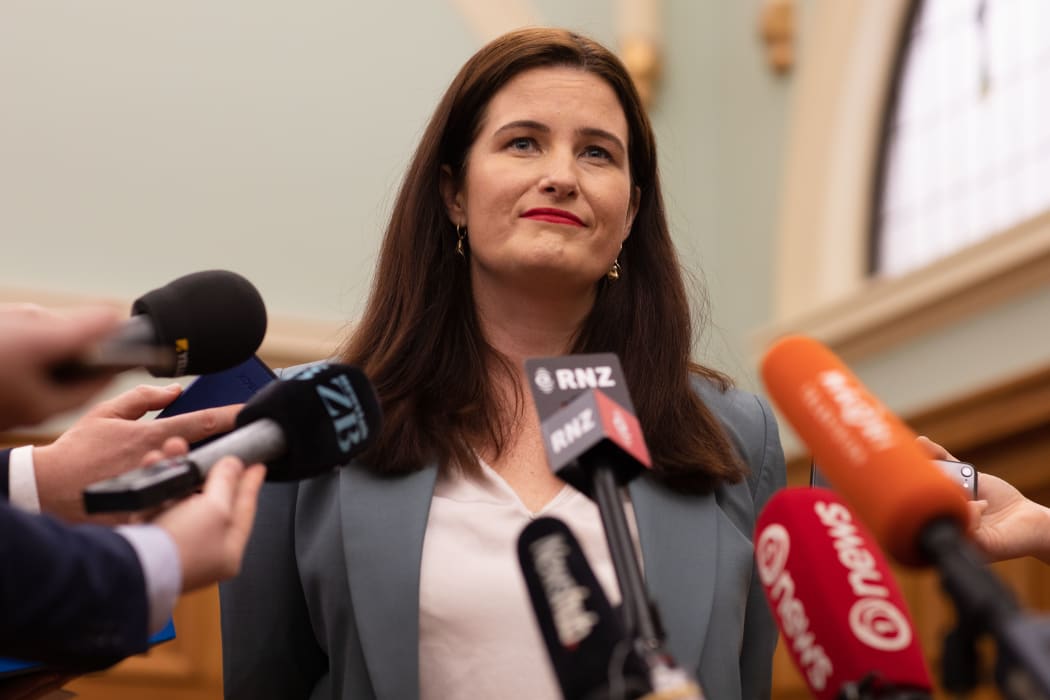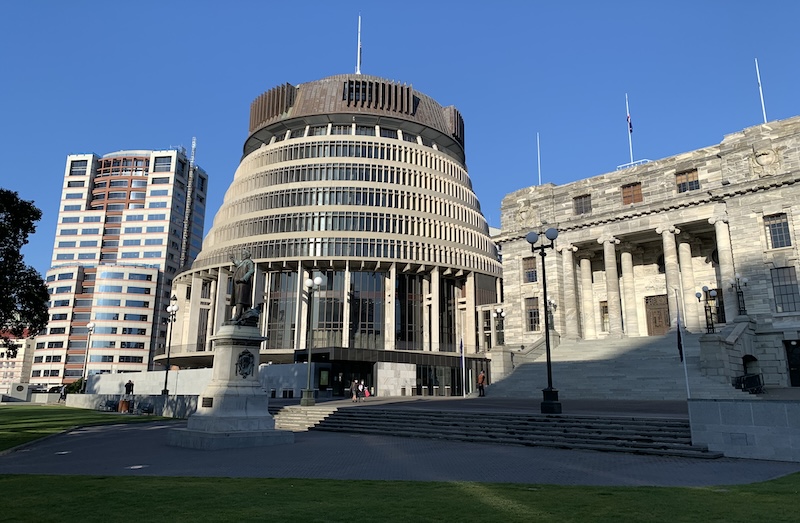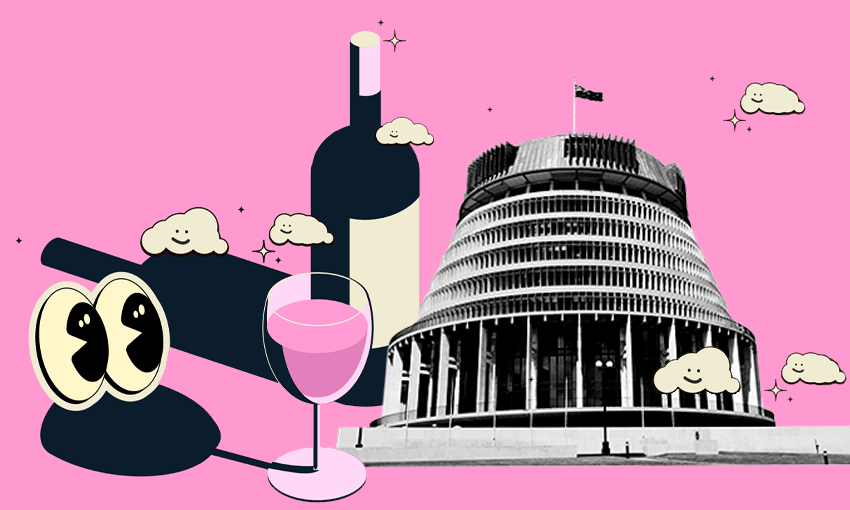The National Party is urging the government to apologise after the auditor-general’s ruling on the distribution of payments to help low and middle income New Zealanders with the high cost of living.
National Party finance spokesperson Nicola Willis says the government’s cost of living payment roll-out demonstrates a ‘culture of disregard for taxpayer money’.
Photo: RNZ / Angus Dreaver
Auditor-General John Ryan had been urged to investigate by National’s deputy leader Nicola Willis.
His investigation concluded that the payments made to ineligible people did not constitute unappropriated expenditure, but that the government should have taken greater care when distributing those payments.
Some people living offshore received the first instalment, as did former migrants and – in some cases – people who had died.
Willis, who is also National’s finance spokesperson, told Morning Report it was unacceptable that it was not known how many people living overseas received the initial payment.
“That’s unacceptable because the public can reasonably expect to know just how many tens of thousands of people received this money from New Zealand taxpayers,” she said.
“The auditor-general has made clear that he thinks the government should have taken greater care with both the design of this policy and its implementation; that they failed the test of good stewardship for taxpayer money.”
Willis said the government should apologise.
“I think what they should be doing is taking accountability, learning the lesson, and apologising for being so reckless with New Zealanders’ hard-earned money.”
She did not accept that mistakes were inevitable due to the policy’s speedy roll-out.
“I’m concerned that ministers were warned that this payment would go to people who weren’t eligible, and they didn’t blink. They’ve become so loose and sloppy with taxpayer cash that they didn’t think twice about the fact that French backpackers, London investment bankers, deceased persons would receive this payment.
“Their attitude seemed to be, ‘oh well, it’s only a few million dollars, it’s taxpayers’ money, let’s get on with the show’ – that’s a bad attitude.”
National had argued from the outset that a “permanent tax reduction” would have been an administratively “simpler” and “fairer” way to deliver relief to tax payers who were being impacted by inflation, Willis said.
She was glad the government was now taking steps to tighten up the eligibility criteria for the payments, but said that should have been done “weeks or months ago”.
“I’m pleased that the auditor-general has pulled the government up on this because, to date, they’ve been very dismissive and I think what this speaks to is a culture of disregard for taxpayer money.”
Exact number of payments to ineligible people will never be known – revenue minister
Revenue Minister David Parker admits the “exact number” of cost of living payments to ineligible people will never be known, but maintains it would have been more costly to require people to complete an application process.
The Inland Revenue Department (IRD) is racing to ensure New Zealanders living overseas do not get the next cost of living payment due on Thursday.
The changes will mean some eligible people have to confirm they are based in New Zealand.
Parker told Morning Report the auditor-general’s investigation had identified that the IRD did not have “enough of a handle” on how many people were ineligible for the payment because they lived overseas.
“I’m not going to blame the department here, but I think with the benefit of hindsight it’s correct that the extra screening tests that we’re now applying to the people we think are most at risk of being overseas … would’ve been better if they were there for the first payment as well as this second and subsequent payment.”
Parker said media criticism at the time of the first payment led the government to ask IRD whether additional screening tests could be applied.
“We sought Cabinet authority immediately to make those changes if necessary and all of that happened before the auditor-general got involved.”
But he did not feel an apology was necessary and maintained the cost of running an application process for two million people would have defeated the purpose of the payment.
“This is a $116 payment, the administration of which should not cost more that $116 otherwise it is a waste of money.”
Parker said it would never be known exactly how many people received the payments in error, but he estimated it would be about 1 percent of the total payments issued “by the end of this”.
“Ninety-nine percent of them, therefore, would have been correct,” he said.
“If I’m right in that, I think that the government is right to have used this process rather than an application process.”
Parker said the IRD had told the government that no matter what it did, there would always be some people who were ineligible because they were overseas but IRD appeared to show them as being in New Zealand.
He said IRD told the government there was no way around that, other than an application process.
“Where the … finer criticism is perhaps justified is to whether that group should have been narrowed earlier.”
Parker said 1.4 million New Zealanders had received the payment at a time when cost of living pressures were highest and the data sets used by Inland Revenue – although very good – were “imperfect”.





















Discussion about this post